
Dr Shasha Zhao FRSA; FHEA
Academic and research departments
Centre for Social Innovation Management, Institute for Sustainability.About
Biography
Background:
Dr Zhao is Associate Professor (Senior Lecturer) of International Business and Innovation in the Department of Strategy and International Business, Surrey University Business School. She is also a Visiting Professor of Shandong University, China. She is Co-Director of Centre for Social Innovation Management at Surrey Business School and Co-President of Academy of International Business Sustainability Shared Interest Group. She is also an Associate of The Africa-Asia Centre for Sustainability at University of Aberdeen, and Centre for Social Innovation Management at Surrey University. She is also a Sustainability Fellow at Institute for Sustainability at University of Surrey. She was a Visiting Research Fellow at Sussex University Business School in 2020. She previously held positions at University of London, Plymouth University and Middlesex University London. Her research focuses on global innovation strategy and knowledge management of multinationals in and from emerging economies, and impact on sustainable development.
Editorial Experience:
Dr Zhao is Deputy Editor of Asian Business and Management, Senior Editor of European Journal of International Management, Associate Editor of European Management Journal, and an active editorial board member of Management International Review, Asia Pacific Journal of Management, Journal of International Business Policy, AIB Insights, and Cross Cultural and Strategic Management, and regular reviewer of Journal of International Business Studies, Journal of World Business, Journal of Management, British Journal of Management, Journal of Management Studies, Academy of Management Perspectives, International Business Review, Journal of Business Ethics, Management and Organization Review, Business & Society, and Business Ethics, the Environment & Responsibility.
Publication Record:
She has published in various elite journals, including Journal of World Business, International Business Review, Asia Pacific Journal of Management, Human Resource Management Journal, Journal of Business Research, International Marketing Review, Thunderbird International Business Review and Critical Perspectives on International Business. She has also published Op-Ed in United Nations' IAP as well as chapters in AIB UKI Palgrave Book Series.
Recognition:
Dr Zhao's lead-authored paper on multinational R&D in emerging Asia won the Best Paper Award at Euro-Asia Management Studies Association (EAMSA) Annual Meeting. Her research on knowledge management of emerging economy multinationals was featured in European International Business Academy Newsletter EIBAZINE. Her work on MNEs and Covid-19 has been selected for inclusion in the WHO Covid-19 Research Database. Her research regarding drivers and solutions to multinationals' contribution to sustainable development has been feature on various news (Link 1, Link 2, Link 3).
She is on the Academy of international Business Advisory Council (along with Robert Grosse, Maria Tereza Fleury, Geoffrey Jones, Sri Zaheer, Peter Liesch, Stewart Miller, William Newburry, and Jeremy Clegg) and was nominated for the role of Vice-President Program of the Academy of International Business.
She was invited as a Keynote speaker at AIB Oceania Conference, 2021, as well as as an invited speaker at The Green Institute (part of the Sustainable Development Solutions Network) Symposium during the World Environment Day, 2022.
She is a twice awardee of The Surrey Values Awards for demonstrating values in inclusion, inspiration, innovation, and integrity and was nominated for the 'Most Empowering Teacher' Award, Middlesex University London.
Contribution to Sustainable Development:
Dr Zhao is Co-Founder and Co-President of Academy of International Business Sustainability Shared Interest Group (S-SIG). She is also one of four long-standing organizing committee member of CYGNA – a global women academics support network with over 300 members. She is also the Co-Director of Centre for Social Innovation Management at University of Surrey (from 01/01/2024).
Dr Zhao was part of the Inaugural Panel entitled: Investment in Sustainable Recovery, co-organized by Academy of International Business (AIB) and United Nations Conference on Trade and Development (UNCTAD) to discuss research and policy implication for a more sustainable post-covid recovery. She was also part of a panel at the 7th World Investment Forum 2021 on Investment in Sustainable Development. She was also a speaker at the 8th World Investment Forum in Abu Dhabi in 2023, on the issue of social upgrading and international business in Ghana. She was also an invited expert reviewer of the Baku Initiative for Climate Finance, Investment and Trade (BICFIT) Dialogue led by UN Trade and Development, WTO, ITC and UNDP, which was signed during a COP29 event in 2024.
Dr Zhao is currently editing a Special Issue in Global Strategy Journal (ABS4) on the topic of MNE innovation in an era of disruptive changes, a Special Issue in Journal of Management Edcuation (ABS2) on the topic of Preparing leaders to tackle grand challenges, and a Special Issue in Asian Business & Management on the topic of MNEs, SDGs, and Asia.
Prior to these, she edited a Special Issue in International Business Review (ABS3) on the topic of: MNE Innovation for Achieving the Sustainable Development Goals, and a Special Issue in AIB Insights (official AIB journal) on the topic of: Managing Sustainable Development in International Business. She also edited a Special Issue entitled: Do MNEs contribute to, or reduce inequality?, which has been published in Critical Perspectives on International Business (ABS2).
Dr Zhao also acts as an advisor to companies working in the space of sustainable technologies, innovations, and social impact.
University Roles
Department Research Lead (2020-2023): Initiated and organized research tea series for the department, organized Surrey-Sussex joint research seminar series with Sussex University.
University Research Ethics Committee (2020-2024): Evaluate research ethics applications submitted by colleagues from across the university
Sustainability Fellow: Institute for Sustainability, University of Surrey
Personal Interest:
In her spare time, Dr Zhao is a semi-professional badminton player, playing county league matches under Badminton England. She also enjoys playing golf and piano.
She is a Gold level donator to Women in Academy of International Business Shared Interest Group every year and regularly volunteers in her local schools and communities.
She made a total donation of 16,000 face masks to University of Surrey and Birmingham University during the Pandemic in 2020.
My qualifications
Previous roles
Conference Co-Organizer: Academy of International Business UK&I Chapter, 2025
Inaugural Track Co-Chair: Sustainability and International Business, Academy of International Business Annual Meeting, Miami, USA, 2021
Conference Track Co-Chair: How Digital Innovation Leads to Inclusivity and Sustainable Development Resilience, International Conference on Sustainable Development, Columbia University, New York, 09/2021
Track Co-Chair: Emerging Markets, European International Business Academy, Oslo, Norway, 2022
News
Dr Zhao speaks at the UN's 8th World Investment Forum in 2023
The WIF 2023 Academic Track is organized in partnership with leading academic institutions and associations in disciplines related to investment and development. The track includes a series of thematic events (elsewhere on the programme) integrating research and ideas from leading scholars, researchers, executives from global companies and senior policymakers. It will cover a broad spectrum of issues related to foreign investment, MNEs and development, including themes such as the energy transition, sustainable infrastructure, FDI and women empowerment, SME internationalization, and industry 4.0 and the future of global investment.
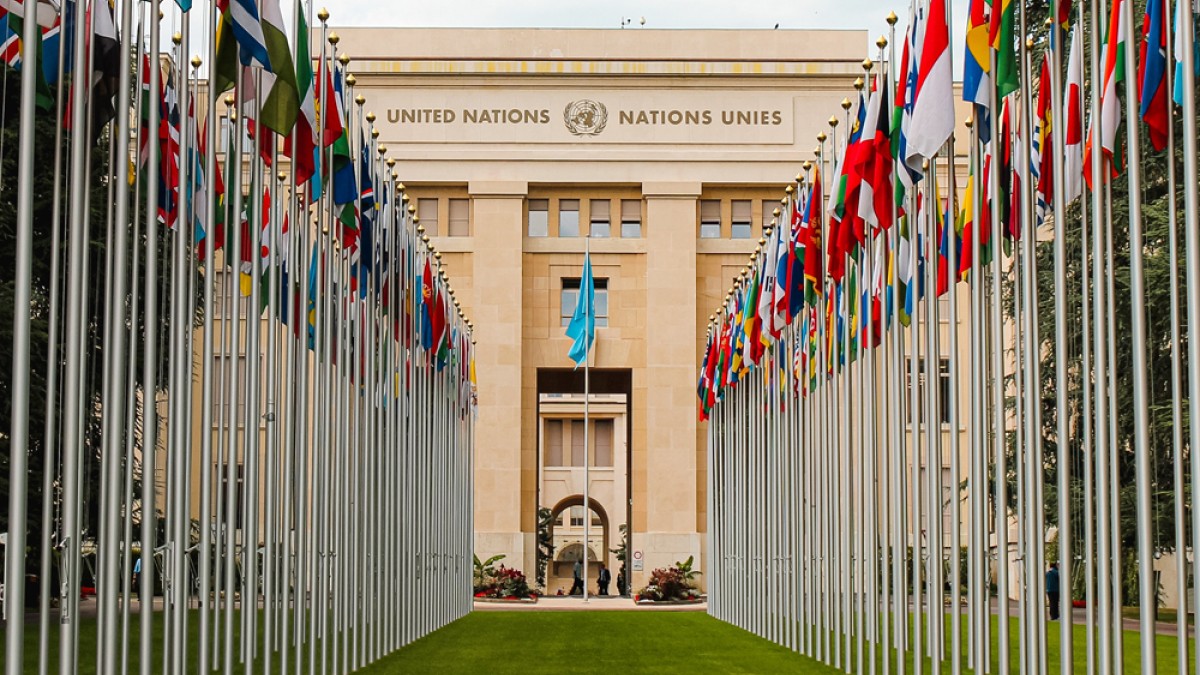

ResearchResearch interests
Research Interests:
Dr Zhao's current research centres on innovation and knowledge management of multinationals in and from emerging economies. She is also passionate about conducting research into the wider sustainability implications of MNE R&D and innovation activities. Most recently, she has been exploring digital technologies and industry 4.0 in international business and sustainable development.
Journals:
Dr Zhao has published in a wide range of journals including Journal of World Business, International Business Review, Asia Pacific Journal of Management, Human Resource Management Journal, International Marketing Review, Critical Perspectives on International Business, and Thunderbird International Business Review. She is currently working on several papers for Journal of World Business, Journal of International Business Studies, and International Business Review. Her lead-authored paper on innovation in emerging Asia won the Best Paper Award at Euro-Asia Management Studies Association (EAMSA) Annual Meeting, 2019.
Guest Editing:
Currently editing a Special Issue in International Business Review (ABS3) on the topic of: MNE Innovation for Achieving the Sustainable Development Goals.
Currently editing a Special Issue in AIB Insights (Official AIB Journal) on the topic of: Managing Sustainable Development in International Business
Edited a Special Issue entitled: Do MNEs contribute to, or reduce inequality?, which has been published in Critical Perspectives on International Business (ABS2).
Editorial Experience:
Associate Editor - Asian Business and Management
Senior Editor - European Journal of International Management
Editorial Review Board - Management International Review; Cross Cultural and Strategic Management; International Journal of Emerging Markets
Reviewer responsibility - Journal of International Business Studies; British Journal of Management, International Business Review; Journal of International Management; Asia Pacific Journal of Management; Management and Organization Review, etc
Reviewer responsibility - Social Sciences and Humanities Research Council of Canada (Insight Grant, B&M Track)
Successful Research Funding:
Co-investigator of ERASMUS+: Culture as a heritage
Co-investigator of UGPN Grant: Water and Sanitation
Co-investigator of FCT Grant: MNEs’ Net Zero Transition
Principal investigator of ESRC Accelerated Impact Fund: MNEs and waste crisis
Principal investigator of SBS Pump Priming Fund: Responsible production and wastes
Research interests
Research Interests:
Dr Zhao's current research centres on innovation and knowledge management of multinationals in and from emerging economies. She is also passionate about conducting research into the wider sustainability implications of MNE R&D and innovation activities. Most recently, she has been exploring digital technologies and industry 4.0 in international business and sustainable development.
Journals:
Dr Zhao has published in a wide range of journals including Journal of World Business, International Business Review, Asia Pacific Journal of Management, Human Resource Management Journal, International Marketing Review, Critical Perspectives on International Business, and Thunderbird International Business Review. She is currently working on several papers for Journal of World Business, Journal of International Business Studies, and International Business Review. Her lead-authored paper on innovation in emerging Asia won the Best Paper Award at Euro-Asia Management Studies Association (EAMSA) Annual Meeting, 2019.
Guest Editing:
Currently editing a Special Issue in International Business Review (ABS3) on the topic of: MNE Innovation for Achieving the Sustainable Development Goals.
Currently editing a Special Issue in AIB Insights (Official AIB Journal) on the topic of: Managing Sustainable Development in International Business
Edited a Special Issue entitled: Do MNEs contribute to, or reduce inequality?, which has been published in Critical Perspectives on International Business (ABS2).
Editorial Experience:
Associate Editor - Asian Business and Management
Senior Editor - European Journal of International Management
Editorial Review Board - Management International Review; Cross Cultural and Strategic Management; International Journal of Emerging Markets
Reviewer responsibility - Journal of International Business Studies; British Journal of Management, International Business Review; Journal of International Management; Asia Pacific Journal of Management; Management and Organization Review, etc
Reviewer responsibility - Social Sciences and Humanities Research Council of Canada (Insight Grant, B&M Track)
Successful Research Funding:
Co-investigator of ERASMUS+: Culture as a heritage
Co-investigator of UGPN Grant: Water and Sanitation
Co-investigator of FCT Grant: MNEs’ Net Zero Transition
Principal investigator of ESRC Accelerated Impact Fund: MNEs and waste crisis
Principal investigator of SBS Pump Priming Fund: Responsible production and wastes
Supervision
Postgraduate research supervision
Dr Zhao has successfully supervised and examined PhD students in the past.
Dr Zhao welcomes prospective PhD students who have research interests in the following areas to get in touch:
Area 1: Multinationals' innovation, knowledge management, and R&D strategies;
Area 2: Internationalization/OFDI of emerging-economy multinationals;
Area 3: Sustainability implications of multinationals' innovation/R&D activities in host economies
Area 4: Digital technologies and industry 4.0 in international business and impact on sustainable development
Area 5: Broad area concerning multinationals originated from advanced and emerging economies
Postgraduate research supervision
Dr Zhao currently supervises two PhD students at University of Surrey:
Toyosi Phillips
Yuanyuan Fan
She also currently supervises one PhD student at Gordon Institute of Business Science, University of Pretoria, South Africa:
Sanelisiwe Mkhwanazi
Teaching
Dr Zhao's teaching focus is in the areas of international business, multinationals' innovation strategy and sustainability implications of multinationals' operations in host economies. She has extensive teaching experience (over 10 years) at both undergraduate and postgraduate levels.
Dr Zhao's pedagogical ethos is underpinned by the idea of empowering individual students to develop into independent learners who possess critical business and management thinking and analytical skills. In 2014, she was nominated by students for the 'The Most Empowering Teacher Award'.
Dr Zhao is the module convenor of MAN2096 International Business, which is taught in Semester 1 of each year. Her module scored 87% overall with the teacher score of 93% in the latest evaluation. She is also on the board of the University Ethics Committee, as well as being part of The Surrey Institute (China)'s Summer School programme.
Additionally, she acts as an external examiner to Kings College London, Cranfield Univeresity, University of Leeds, Sussex University, and Greenwich University, UK.
Sustainable development goals
My research interests are related to the following:

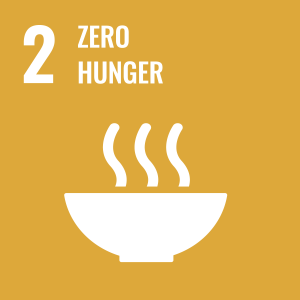

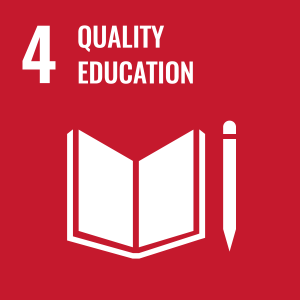
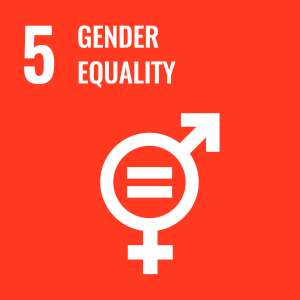
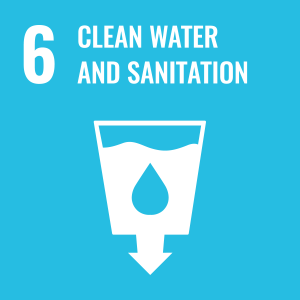







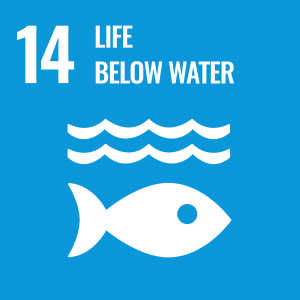
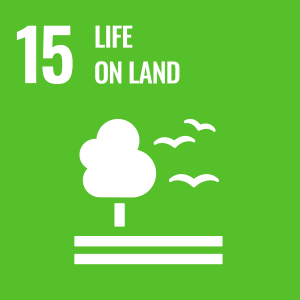
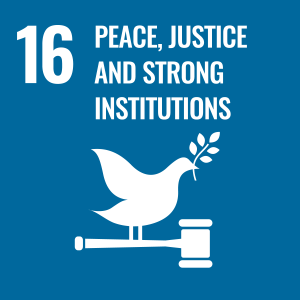
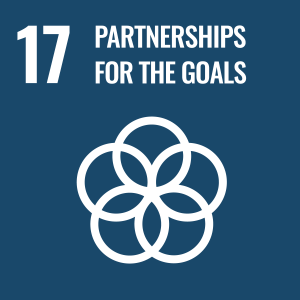
Publications
Purpose This perspective paper aims to extend the recent conversation on deglobalization in the context of the global value chain (GVC) framework. It highlights the positive role of sustainable innovation in GVCs, pursued by multinational enterprises (MNEs), as an antidote to the call for deglobalization. Design/methodology/approach Insights from relevant empirical incidents and case studies concerning SDG12 (Responsible Production and Consumption) and sustainable innovation have been used to illustrate the viewpoints and support the development of a set of conceptual arguments. Findings MNEs can play a critical role in the initiation and implementation of sustainable innovation in GVCs, which in turn contribute to social, economic, and environmental development, especially in developing countries. Research implications Three key research avenues are suggested to guide future scholarship. These include formal institutions, informal institutions, and digital transformation, which will affect how MNE sustainable innovation can contribute to GVC resilience and sustainability. Practical implications Three corporate innovation strategies are provided to guide future managerial practices relating to responsible production and consumption. These include co-investment in grassroots innovations, eco-innovation capability building, and global standard setting. Social implications Pursuing MNE sustainable innovations contributes to social value creation in two main ways. One is the resilience of GVCs to enable developed and developing countries to remain interdependent for social-economic stability and growth. Two is the sustainability of GVCs to enable societies to benefit from green and advanced technologies that improve social-environmental conditions. Originality/value A novel conceptual perspective which explicates the nexus of MNE sustainable innovation and GVC resilience and sustainability in the context of geopolitical uncertainty and institutional diversity, as well as new research avenues for future scholarship, are introduced.
For emerging market firms (EMFs) internationalisation is as an important channel through which knowledge is gained and innovation capabilities acquired. However, rising global uncertainty and geopolitical tension make this increasingly challenging. We employed an in-depth case study approach to examine how a Chinese high-tech firm pursued innovation during the Tech Cold War. We found that the firm focused on pursuing indigenous innovation. Three organisational cultural attributes (patriotism, elitism and endurance of hardship) proved to be particularly important enabling mechanisms. We extend theorisation on EMF innovation management - particularly catching up through internationalisation - by identifying ever more advanced capabilities that provide the basis for increasing the pursuit of indigenous innovation by EMFs. We further contribute to research on techno-nationalism by examining how techno-nationalist policies affect EMF innovation and how firms cope with such restrictions. More generally, our findings advance the emerging field of studies focusing on geopolitics in EMF innovation by highlighting the ever more critical role of international politics and state policies.
This article explores the role of multinational enterprises (MNEs) in advancing the Sustainable Development Goals (SDGs) in Asia, a region characterized by economic dynamism, diverse socio-political contexts, and significant environmental challenges. Since the launch of the SDGs in 2015, MNEs have emerged as key players in fostering sustainable development, notably through their global value chains, knowledge transfer, innovation, and corporate social responsibility (CSR) initiatives. However, their contributions remain uneven, constrained by short-term profitability goals, fragmented regulatory frameworks, or symbolic CSR practices. Drawing on existing literature and empirical insights, this article examines how MNEs integrate sustainability into their strategies, balancing economic imperatives with societal and environmental responsibilities. It highlights the potential of ethical corporate practices, stakeholder collaboration, and policy support to drive transformative change. The article also identifies challenges such as governance gaps and limited stakeholder engagement, emphasizing the need for systemic reforms. Concluding with recommendations for future research, it underscores the importance of understanding Asia’s unique context to unlock the full potential of MNEs in achieving the SDGs and fostering sustainable development globally.
This Special Issue is the first joint effort between the Academy of International Business’ Sustainability Shared Interest Group and AIB Insights. Sustainability has become an increasingly important consideration for multinational enterprises, and seeking approaches to implementing sustainability-improving change has thus become a strategic priority. This Special Issue provides novel and actionable insights – for researchers, practitioners, and policymakers – about the crucial role that multinational enterprises are playing in achieving sustainable development.
This perspective article highlights some major implications of the recent pandemic (Covid-19) on global value chains (GVCs) and how the pandemic can accelerate the adoption of digital and industry 4.0 technologies in GVCs, with attention paid to multinational enterprises (MNEs) and small-medium enterprises (SMEs). Particularly, it discusses the potential value of digital technologies in enhancing GVC resilience for better mitigation of disruptions caused by future global shocks. It also proposes useful avenues for future policy considerations to support and direct deployment of digital technologies across key stakeholders in GVCs.
Purpose – This paper clarifies how business education has and should incorporate more resources, policies, and stakeholder engagement towards the incorporation of sustainability, by conducting a literature review on sustainability in business and international business education and proposing future opportunities for researchers and practitioners. Design/methodology/approach – We take a systematic, qualitative analysis approach to evaluate multidisciplinary literatures on sustainability in business education. We identify 192 qualifying articles published in 68 journals between 2015 and 2023. Findings –We propose five categories of education solutions. Four of them are integrated, in two macro-micro levels: university (stakeholders and shared-mindset change), and student (pedagogical methods and curriculum); and one at meso level: international business (holistic integration) serving to unify the university and student levels. Research implications – Our review highlights the value of applying a holistic approach and interdisciplinary pedagogical methods in future research on sustainability education in business school, to effectively prepare future business leaders to contribute to a more sustainable future. Practical implications – Insights from this review can usefully guide scholars and program directors in their future research and administrative efforts toward business curriculum design, stakeholder management, and policy making. Social implications –Our findings highlight how by embracing holistic perspectives, proper policies, and self-awareness, business education shapes the mindsets and skill sets of the next generation of socially conscious practitioners. Originality/value – Our review stands out as one of the few that offers a forward-looking trajectory for the adaptation of international business education in response to sustainability challenges, through a holistic perspective.
This paper addresses into the pivotal role of multinational enterprises (MNEs) in spearheading global sustainability, particularly by aligning their innovations with the United Nations Sustainable Development Goals. We underscore a paradigm shift in international business, emphasizing the pressing need for sustainable practices among MNEs in the face of grand global challenges such as climate change, political instability, trade protectionism, and inequality. We discuss the innovation ecosystems and stakeholder approach as an essential conceptual framework for examining drivers and outcomes of MNEs’ sustainable innovations. The paper offers a fresh perspective on integrating corporate goals with broader sustainability targets by connecting with stakeholders of local communities in host countries who are attuned to idiosyncratic sustainability challenges.
The COVID-19 pandemic has prompted an unprecedented reaction in several multinational enterprises (MNEs). These MNEs have adopted social innovation approaches to meet the needs of vulnerable societal groups by swiftly innovating their business models; drastically changing their product offerings and customer bases; and producing COVID-19 necessities. These approaches have alleviated some key pandemic-induced social challenges related to health and sanitation. In this perspective article, we use secondary sources of information to present and exemplify the various types of MNE pandemic-induced social innovation approaches. We open the discussion on whether these approaches are transitory in nature or whether they can and should be sustained in the long-term, given the right incentives to these MNEs. We conclude by redefining MNEs’ social innovation and by suggesting avenues for scholars, practitioners, policymakers, and educators to support this momentum in MNEs which we argue, if sustainable, can be fruitful for addressing other pressing grand challenges such as climate change, food security, poverty, and inequality.
A major wave of innovation FDI has been taking place as a result of the reconfiguration of global innovation strategy by multinational enterprises. Published data shows that core subnational regions (high global and local connectedness and performance) are the main recipients compared to peripheral regions. This uneven distribution has significant strategic implications for peripheral regional development. This study evaluates exemplar literature that offers valuable insights into the links among MNE FDI, subnational peripheries, and local upgrading. It provides a literature-informed framework which conceptualizes key antecedents, mechanisms, consequences, and their relationships. The study makes three contributions: First, it scrutinises early evidence concerning MNEs and host subnational peripheries and unfolds the current state of knowledge. Second, it introduces a conceptual framework that maps out the nexus of MNE FDI, subnational peripheries, and local innovation upgrading. Third, it highlights how this line of inquiry helps to evaluate the current progress on achieving UN’s Sustainable Development Goal 8, particularly targets 8.2 and 8.3.
The life‐blood of most organizations is knowledge. Too often, the very mechanisms set up to facilitate knowledge flow militate against it. This is because they are instituted in a top‐down way, they are cumbersome to manage and the bridges of trust fail to get built. In their thirst for innovation, the tendency is for firms to set up elaborate transmission channels and governance systems. As a result, staff are drowned in a deluge of mundane intranet messages and bewildered by matrix structures, while off‐the‐wall ideas and mould‐breaking insights are routinely missed. Added to this is the challenge of operating across professional, cultural, regional and linguistic boundaries, where ways of sharing knowledge differ markedly, even within the same project team. Drawing upon extensive research with scientists in the ATLAS collaboration (a high‐energy particle physics experiment comprising 3,500 scientists from 38 countries), we explore five paradoxes associated with knowledge exchange in global networks. Each paradox leads to a proposition which takes the theory and practice of knowledge management in a fresh direction. We conclude by outlining a number of HRM priorities for international knowledge‐intensive organizations.
This chapter offers novel insights into on how global corporations can innovate to tackle the global waste crisis and gain sustainable competitive positions. Using the two of the most prominent types of global waste crises - food and plastic wastes - we discuss the dilemma of food and plastic waste, why innovations in global firms are needed to address them, and argue that a different perspective among those firms is needed, one which conceptualizes the development, dissemination, and use of innovations in waste management, and one which recognizes that innovations thus created contribute to advancing the creation of economic, environmental, and social value. We conclude using an overarching conceptual framework that depicts the complexity of the new perspective.
Knowledge is critical to the survival of emerging economy multinationals (EMNEs), who are confronted by a lack of internal competitive capabilities and external challenges associated with diverse institutional environments. They thus must manage and orchestrate their knowledge globally for ultimate catch up. This article systematically reviews literature concerning EMNE knowledge management using content analysis of 93 articles in 17 leading journals across 7 major disciplines from 2000 to 2020. Applying the antecedent-process-outcome (APO) framework, we identify three major themes: knowledge-seeking strategy, knowledge transfer and innovation. We discuss knowledge frontier issues, directions for future scholarship, and avenues for greater interdisciplinary cross-fertilization.
The term “heritage” seems to have different meanings. Hewison (The heritage industry: Britain in a climate of decline. Methuen, 1987) states that heritage is derived from past images of history transmitted into current reality. Park (Annals of Tourism Research 37:116–135, 2010) describes heritage as an essential part of national representation and linked it to symbolic foundations of the nationhood process and identityIdentity. However, heritage is not only a tangible representation of the past, as intangible heritage also plays a role by manifesting diverse symbolic meanings and spiritual embodiments (Park, Annals of Tourism Research 37:116–135, 2010). At the same time, cultural tourism refers to a segment of the tourism industry that places special focus on heritage and cultural attraction (Remoaldo et al., Tourism and Hospitality Research 14:206–218, 2014).
Innovation performance of multinational corporations (MNCs) derives from access to and utilization of a combination of explorative and exploitative knowledge across heterogeneous settings. These settings increasingly encompass flagship industries in emerging economies. There is limited research, however, that scrutinizes the processes of knowledge sourcing within such dynamic host environments, taking into account MNCs’ differing location capabilities. We draw on the concept of ambidexterity – the combination of exploration and exploitation – and the microfoundations approach to study eleven MNCs in the Bulgarian software development industry by focusing on their local R&D projects. We extend the explanatory capacity of ambidexterity at the micro level and clarify the relationship between exploration and exploitation by identifying four types of ambidexterity: global knowledge differentiator, global-local knowledge integrator, emerging local-global integrator, and local knowledge integrator. Our typology is underpinned by three specific dimensions of R&D capabilities: technical know-how, scope of expertise, and market potential.
The increasing dynamism of the international business (IB) environment has drawn greater scholarly attention to the implications of international politics for MNEs’ cross-border activities. However, a systematic overview of International Relations (IR) research which has been applied in IB studies is absent. To analyse this void, we propose a conceptual framework of the broader international context to delineate the research boundaries of the emerging IR in IB research domain and offer a critically synthesized review of the studies that have drawn on IR scholarship to explain MNEs’ behaviour. We conduct bibliometric and content analyses to understand the state of knowledge of IR in IB research and examine the main approaches to study the impact of IR factors on MNEs’ location choices, entry strategies, legitimacy and post-entry performance. By illuminating knowledge frontier issues, we derive important directions for deepening the integration of IR scholarship to advance IB research.
Purpose The purpose of this paper is to engage in a comprehensive review of the research on information technology (IT)-mediated international market-entry alliances. Design/methodology/approach This paper provides a theory-informed conceptual framework of IT-enabled cross-border interfirm relationships and performance outcomes. It integrates perspectives of resource-based view (RBV) and transaction cost economics (TCE) to argue that the establishment of interfirm IT capabilities enhances the marketing performance of the foreign partner in the host location by improving interfirm relationship governance. Furthermore, IT-related risks and contextual restrictions are identified as important moderators. Findings Conceptualisations of IT capabilities, IT-enhanced interfirm governance, and IT-led marketing performance improvement are suggested. Drawing on RBV and TCE, IT resources, related human resources, and IT integration between partner firms in combination enhances the ability of firms to manage the relationship more effectively through shared control, interfirm coordination, cross-firm formalisation, and hybrid centralisation. These benefits then bring about better upstream and downstream marketing performance in the host location. Additionally, IT capabilities help to mitigate possible contextual limitations and risks. Research limitations/implications The paper offers a number of theory- and literature-informed research propositions which can be empirically tested in future studies. Practical implications Top managers of firms currently in or planning to enter international alliances for market entry should carefully consider effective development of interfirm IT capabilities in terms of readiness of hardware and software, human resources, and organisational resources. Originality/value The paper provides an integrated framework and propositions which contribute to limited understanding and appreciation of IT value in international market-entry alliances.
This chapter reveals the inconvenient truth that oftentimes the execution of a global corporation’s business model can cause it to act irresponsibly even though it has the desire and intent to act responsibly. The root cause of this inconvenient truth is that, essentially, the ‘old’ business models MNEs have used to become what they are simply are not compatible with what is needed to adopt a sustainability-focused way of doing business. In our view, what is needed are thoughtful innovations in those business models. To achieve this, the right mindset is necessary. We discuss some of the challenges using multiple case studies. We propose a novel view depicting the interconnectedness of corporate business model, global value chain, and sustainable development goals as three intertwining components necessary for business model innovation that simultaneously achieves firm performance and sustainable development.
In line with the recent shift of R&D internationalization towards developing Asia, this Perspective paper reviews, contextualises, and evaluates the evolving patterns of creation, transfer, and assimilation of knowledge in multinational enterprises (MNEs). A typology is proposed consisting of four stylized nodes: West (industrialized mature economies), East One (emerging industrializing economies of developing Asia), East Two (Asian economies at an earlier stage of industrialization), and East Three (Asian economies with limited visible signs of industrialization). Within these nodes, this paper applies an institution-based view to discuss their diverse national innovation environment (with particular attention paid to governments, indigenous firms, and institutional conditions), and the network perspective to propose an intra-regional knowledge hierarchy, reflecting dynamic knowledge links.
Intensified competition means that multinational enterprises (MNEs) are increasingly concerned with locating innovation activities in the most appropriate locations. This had led to emerging economies in the South becoming an important destination of R&D-related foreign direct investment (FDI), departing from their traditional role as low-cost production sites. Thus far, however, our understanding of this transformation process is limited. The purpose of this article is therefore to explore the process by which foreign MNEs’ low-value-adding operations in the South are transformed into high-value-adding R&D operations. Drawing on the current literature, we construct a framework of evolution consisting of four major waves of R&D internationalization and corresponding R&D objectives. To better understand how these waves have evolved over time, we focus on the South and trace the process of change using a single historical case study: AstraZeneca in China between 1993 and 2017. We find evidence of idiosyncratic location-bound conditions offering both opportunities and resources. The gradual development of these favourable conditions, along with AstraZeneca’s deepening local knowledge, triggered a transformation process in their operations in China. Our study thus offers important historical insights, which present a platform for future research providing more nuanced theoretical explanations of the four waves of R&D internationalization.
Emerging economies have become new destinations for knowledge sourcing, forcing Multinational Enterprises (MNEs) to reconfigure their global innovation strategies and structure. While foreign subsidiaries located in emerging economies were conventionally viewed as having market or efficiency seeking roles, they have started to evolve towards knowledge-seeking roles. We argue that the conventional wisdom shall be reassessed considering this recent shift. We empirically investigate 129 manufacturing MNE subsidiaries of Fortune 500 companies in China, in terms of their roles and sources of technology. Our results indicate that market and knowledge seeking subsidiaries located in China tend to have a positive impact on the generation of new knowledge, either through locally established MNE R&D laboratories or through collaborations with local firms and scientific institutions. 2
Although counterfeiting has been discussed in the literature, research focusing on the newly-emerged upper-middle class from emerging economies remains scarce. The aim of this exploratory study is to uncover the new upper-middle class consumers' attitudes towards counterfeiting in China. Qualitative research method was adopted to provide richer and deep information on the research questions. Through semi-structured in-depth interviews with members of the Chinese upper-middle class in Beijing, this study reveals that upper-middle class consumers present a distinctive view in counterfeiting in that they believe counterfeiting not only causes grave welfare related consequences and loss of trust in the legal system, but also seriously interferes with the order of the market.
Past evidence suggests that constructive misalignment is particularly problematic in International Business (IB) education, though this paradigm has received limited research attention. Building on the literature of three independent teaching methods (threshold concept, problem-based learning, and technology-based learning), this study contributes to the IB education literature by integrating the three existing methods in a co-complementary and co-supporting manner, and carefully implementing them across three subsequent stages spanning across the length of the IB course. Empirical evidence on student satisfaction and assessment performance shows its usefulness in reducing the negative effects of constructive misalignment among the sampled students. The approach provides practitioners with refreshed insights into how the three independent methods can be integrated to create greater value for learners.
This chapter explores the dyadic relationship between headquarters and in terms of their perceptions of decision-making loci and associated organisational structure . By comparing the responses of parents of Greek Multinational Enterprises (MNEs) and their subsidiaries, we find evidence in favour of a perception gap in terms of decision-making between headquarters and subsidiaries. We argue that future research needs to carefully consider and account for the perception gap and point out the importance of the role of MNE managers in removing such barriers in order to achieve effective decision-making .
The concept of ‘healthy city’ has had a long establishment in public health management literature. It was initially used to describe the living conditions of cities in developed economies (Duhl, 1986). In late 1980s, The World Health Organization (WHO)'s European Office initiated a major new project known as ‘Healthy Cities’ – the time the term started to draw both researcher and policy-maker attentions and became widely-used. It was used to support public health promotion at the city level. The city being often the lowest administrative level is thus believed to have the power to marshal the resources as well as the political mandate and authority to develop and implement integrative approaches to health (Ashton, J., Grey, P. & Barnard, K., 1986). It was only since the 1990s that scholars and public bodies started to consider it in the context of developing countries. For example, between 1995 and 1999 the WHO Geneva undertook healthy city projects in Cox's Bazar, Bangladesh, Dares Salaam, Tanzania, Fayoum, Egypt, Managua, Nicaragua, and Quetta, Pakistan. These projects marked the shifting political mentality of increasing attention to peripheral regions of the world in terms of improving their living conditions (Harpham, T., Burton, S. & Blue, I., 2001; Ramaswami, A., Russell, A. G., Culligan, P. J., Sharma, K. R., & Kumar, E., 2016).
Additional publications
Currently Editing a Special Issue on the topic of: MNE Innovation for Achieving the Sustainable Development Goals, in International Business Review (ABS3)
Currently Editing a Special Issue on the topic of: Managing Sustainable Development in International Business, in AIB Insights (Official AIB Journal)
Edited a Special Issue entitled: Do MNEs contribute to, or reduce inequality?, in Critical Perspectives on International Business. This Issue is featured on Emerald’s Responsible Leadership webpage and offers free access: https://www.emeraldgrouppublishing.com/our-goals/responsible-management…
Current research projects:
Innovation and knowledge management of MNEs from emerging economies
Internationalization of state-owned enterprises
MNE innovation and knowledge management in emerging economies
MNEs and upgrading innovation capability of emerging-economy’s peripheral regions
EMNEs' learning and catch up
EMNE knowledge-seeking strategy abroad
International political economy in IB

